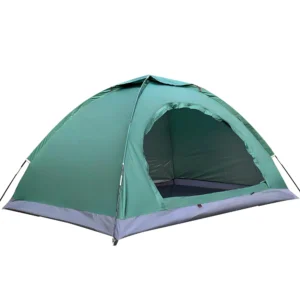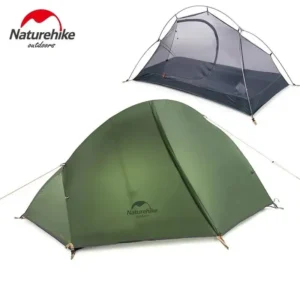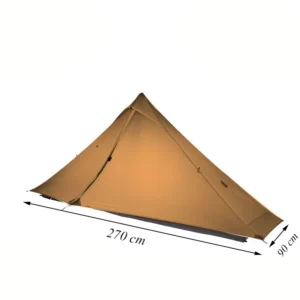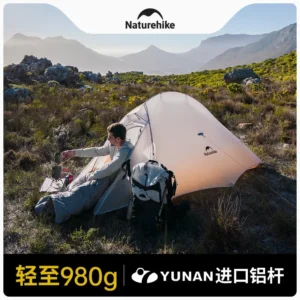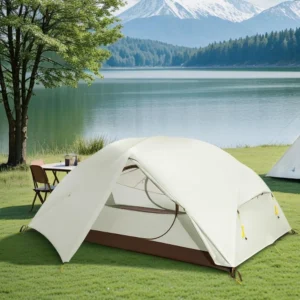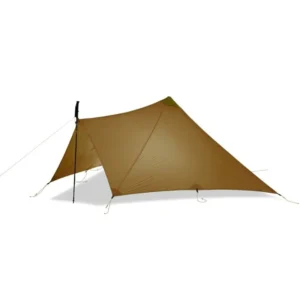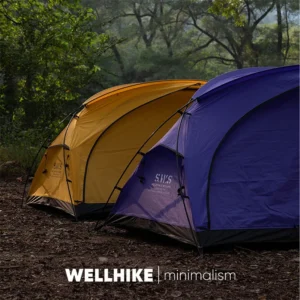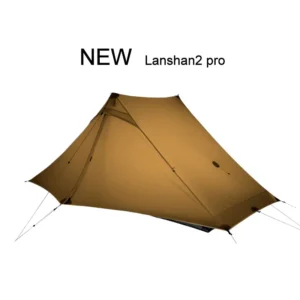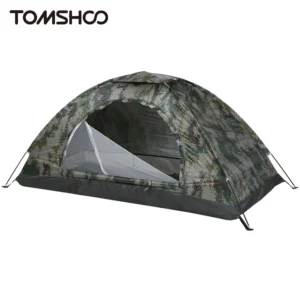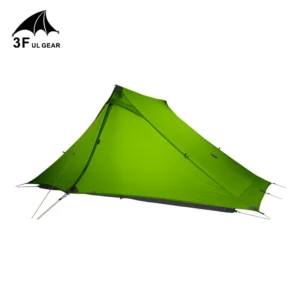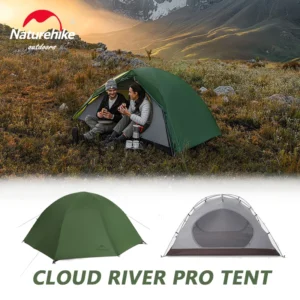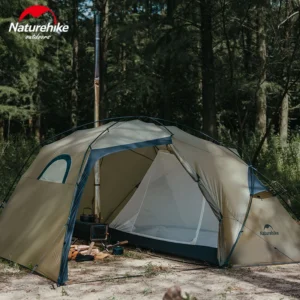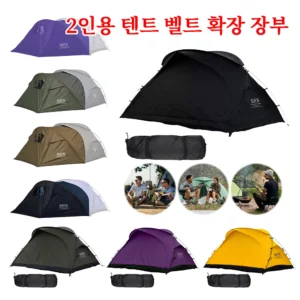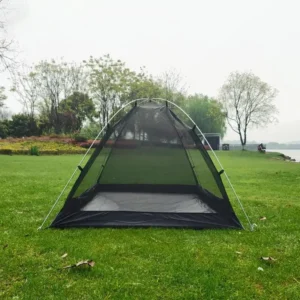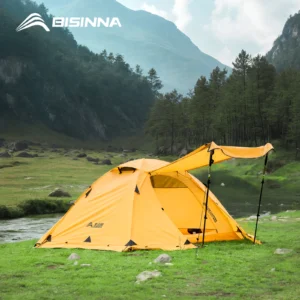Lightweight Backpacking Tent
Travel lighter on the trail without sacrificing protection. Our lightweight backpacking tents keep you dry and comfortable, making hikes easier and adventures bigger. Explore the collection.
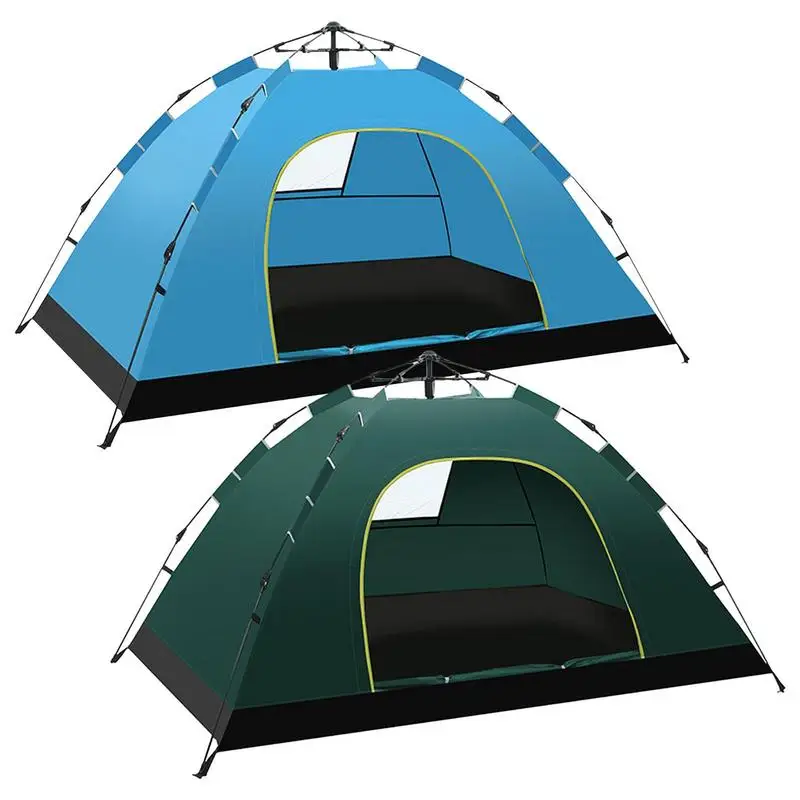
Showing 1–12 of 53 results
Lightweight Backpacking Tent, Trekking Pole Backpacking Tent, Waterproof Camping Tent
Price range: $171.12 through $173.16 Select options This product has multiple variants. The options may be chosen on the product pageLightweight Backpacking Tent, Ultralight Backpacking Tent, Ultralight Trekking Pole Tent
Price range: $462.40 through $587.15 Select options This product has multiple variants. The options may be chosen on the product pageLightweight Backpacking Tent, Trekking Pole Backpacking Tent, Ultralight Backpacking Tent, Ultralight Trekking Pole Tent
Price range: $471.85 through $478.11 Select options This product has multiple variants. The options may be chosen on the product pageLightweight Backpacking Tent, Trekking Pole Backpacking Tent, Ultralight Backpacking Tent, Winter Camping Tent
$1,353.20 Select options This product has multiple variants. The options may be chosen on the product pageLightweight Backpacking Tent, Ultralight Backpacking Tent, Waterproof Backpacking Tent
$391.05 Select options This product has multiple variants. The options may be chosen on the product pageLightweight Backpacking Tent, Trekking Pole Backpacking Tent, Ultralight Trekking Pole Tent
Price range: $355.90 through $367.93 Select options This product has multiple variants. The options may be chosen on the product pageLightweight Backpacking Tent, Trekking Pole Backpacking Tent, Waterproof Camping Tent
Price range: $472.50 through $475.42 Select options This product has multiple variants. The options may be chosen on the product pageLightweight Backpacking Tent, Trekking Pole Backpacking Tent, Ultralight Backpacking Tent, Ultralight Trekking Pole Tent
Price range: $1,129.41 through $1,176.33 Select options This product has multiple variants. The options may be chosen on the product pageLightweight Backpacking Tent, Trekking Pole Backpacking Tent, Ultralight Backpacking Tent
Price range: $70.08 through $127.36 Select options This product has multiple variants. The options may be chosen on the product pageLightweight Backpacking Tent, Trekking Pole Backpacking Tent, Ultralight Trekking Pole Tent
Price range: $647.36 through $673.54 Select options This product has multiple variants. The options may be chosen on the product pageHeavy Duty 4 Season Tent, Lightweight Backpacking Tent, Trekking Pole Backpacking Tent, Ultralight Backpacking Tent
$748.00 Select options This product has multiple variants. The options may be chosen on the product pageBackpacking Tent with Vestibule, Heavy Duty 4 Season Tent, Lightweight Backpacking Tent, Winter Camping Tent
$971.82 Select options This product has multiple variants. The options may be chosen on the product page
Showing 1–12 of 53 results
What Makes a Backpacking Tent “Lightweight”?
When exploring the backcountry, every ounce matters. Lightweight backpacking tents typically weigh between 3-5 pounds, while their ultralight counterparts push boundaries at just 1-3 pounds. Unlike standard camping tents that prioritize space and amenities, lightweight backpacking tents focus on minimizing weight while maintaining essential protection from the elements.
These shelters represent a careful balance between weight reduction and functionality. Material innovations have allowed manufacturers to create tents that weigh half what comparable models did a decade ago, without sacrificing weather protection. For serious hikers, selecting the right lightweight tent becomes one of the most important gear decisions, as shelter is both essential for safety and one of the heaviest items in your pack.
Key Benefits of Lightweight Backpacking Tents
Carrying less weight fundamentally transforms your hiking experience. A lightweight tent reduces fatigue during long days on the trail, allowing you to hike farther, explore more challenging terrain, or simply enjoy the journey with less physical strain. Over a multi-day trip, the difference between a 7-pound traditional tent and a 3-pound lightweight option becomes increasingly significant with each passing mile.
This weight reduction also creates more space in your pack for food, water, and other essential gear. Many Explore Elements customers report that switching to lightweight tents has enabled them to tackle ambitious backcountry routes they previously considered beyond their capabilities. For weekend warriors and thru-hikers alike, the freedom of movement that comes from carrying less is transformative.
Essential Features of Quality Lightweight Tents
Despite their minimalist design, premium lightweight tents maintain critical performance features:
Weather Resistance: Look for waterproof ratings of 1,500mm hydrostatic head or higher for the floor and at least 1,200mm for the rainfly. Quality seam sealing and well-designed rainfly coverage prevent leakage during sustained precipitation.
Ventilation Systems: Strategic mesh panels and adjustable vents combat condensation—a common issue in lightweight shelters. Double-wall designs typically offer superior ventilation compared to single-wall alternatives.
Structural Integrity: Advanced pole architectures use minimal materials while maximizing stability. DAC Featherlite NSL poles exemplify this balance, providing remarkable strength despite their minimal weight.
Setup Efficiency: The best lightweight tents feature intuitive designs that one person can quickly assemble, even in challenging conditions. Color-coded components and logical connection points facilitate rapid deployment.
Packability: Beyond mere weight, compact packed size matters enormously for backpacking. Quality lightweight tents compress remarkably small, with many fitting horizontally in a pack for optimal weight distribution.
Materials That Define Modern Lightweight Tents
The dramatic weight reduction in modern backpacking tents comes primarily from revolutionary materials:
Fabrics: Silnylon (silicone-impregnated nylon) offers excellent strength-to-weight ratio with good water resistance. Silpoly (silicone-impregnated polyester) resists stretching when wet. DCF (Dyneema Composite Fabric) represents the ultralight frontier—incredibly light, waterproof, and strong, but at a premium price point.
Poles: Aluminum alloys like 7000-series aluminum provide an excellent balance of weight, strength, and value. Carbon fiber poles save more weight but cost significantly more and may be less durable in extreme conditions.
Floor Materials: Higher denier (thickness) ratings in floor materials indicate greater durability. Quality lightweight tents often use 30-70 denier floors, balancing protection against punctures with weight savings.
These material choices directly impact not just weight, but also durability, packed size, and price—illustrating why premium lightweight tents command higher prices than their conventional counterparts.
Types of Lightweight Backpacking Tents
Lightweight tents fall into several distinct design categories:
Freestanding vs. Non-Freestanding: Freestanding designs use pole structures that maintain their shape without stakes, offering flexibility on rocky ground but typically weighing slightly more. Non-freestanding tents save weight but require proper staking for stability.
Single-Wall vs. Double-Wall: Single-wall tents eliminate the separate rainfly, saving weight but potentially increasing condensation issues. Double-wall tents offer better moisture management through the separation of inner tent and rainfly.
Trekking Pole Tents: These innovative designs replace dedicated tent poles with the trekking poles you’re already carrying, substantially reducing packed weight. They’re popular among distance hikers but require more practice to set up properly.
Choosing the Right Capacity: Solo vs. Two-Person Tents
When selecting tent capacity, consider these factors:
- A typical solo tent offers 15-20 square feet of floor space, while two-person tents provide 25-35 square feet
- The weight penalty for upgrading from 1P to 2P averages 8-16 ounces
- Two-person tents offer significant versatility for solo hikers who want extra space for gear storage
- Consider your sleeping pad width, height, and comfort preferences when evaluating floor dimensions
Many backpackers find that a lightweight two-person tent strikes the ideal balance between comfort and packability, even for solo adventures.
Seasonal Ratings and Weather Protection
Most lightweight backpacking tents fall into these categories:
- 3-Season: Designed for spring, summer, and fall conditions with good ventilation and moderate weather protection
- Extended Season: Enhanced stability for mild winter conditions but still prioritizing weight savings
- 4-Season: Engineered for winter use with stronger poles, less mesh, and steeper walls to shed snow
For typical backpacking scenarios, 3-season tents offer the best combination of weight savings and protection. However, if your adventures regularly take you into exposed alpine terrain or shoulder season conditions, the additional ounces of an extended season design may be justified.
Alternatives to Traditional Lightweight Tents
For those seeking to minimize weight further:
- Tarps provide minimalist shelter at 8-16 ounces but sacrifice bug protection and full enclosure
- Bivy sacks offer weather protection for your sleeping bag at 1-1.5 pounds but with minimal living space
- Hammock systems with rainflies work well in forested areas while keeping you off the ground
- Tarp tents combine elements of tarps and tents for an ultralight hybrid solution
These alternatives can shine in specific conditions but generally sacrifice comfort and versatility compared to lightweight tents.
Are Lightweight Backpacking Tents Worth It?
The value proposition of lightweight tents becomes clearest when considering your specific hiking style. For weekend backpackers tackling moderate distances, the weight savings might be less critical than comfort features. However, for those regularly covering 10+ miles daily or tackling challenging elevation gains, a quality lightweight tent transforms from luxury to necessity.
The craftsmanship and materials in premium lightweight tents from brands like Explore Elements also translate to impressive longevity despite their minimal weight. Many customers report their lightweight tents performing flawlessly after years of service—a testament to how advanced materials and thoughtful design can create gear that’s simultaneously lightweight and durable.

